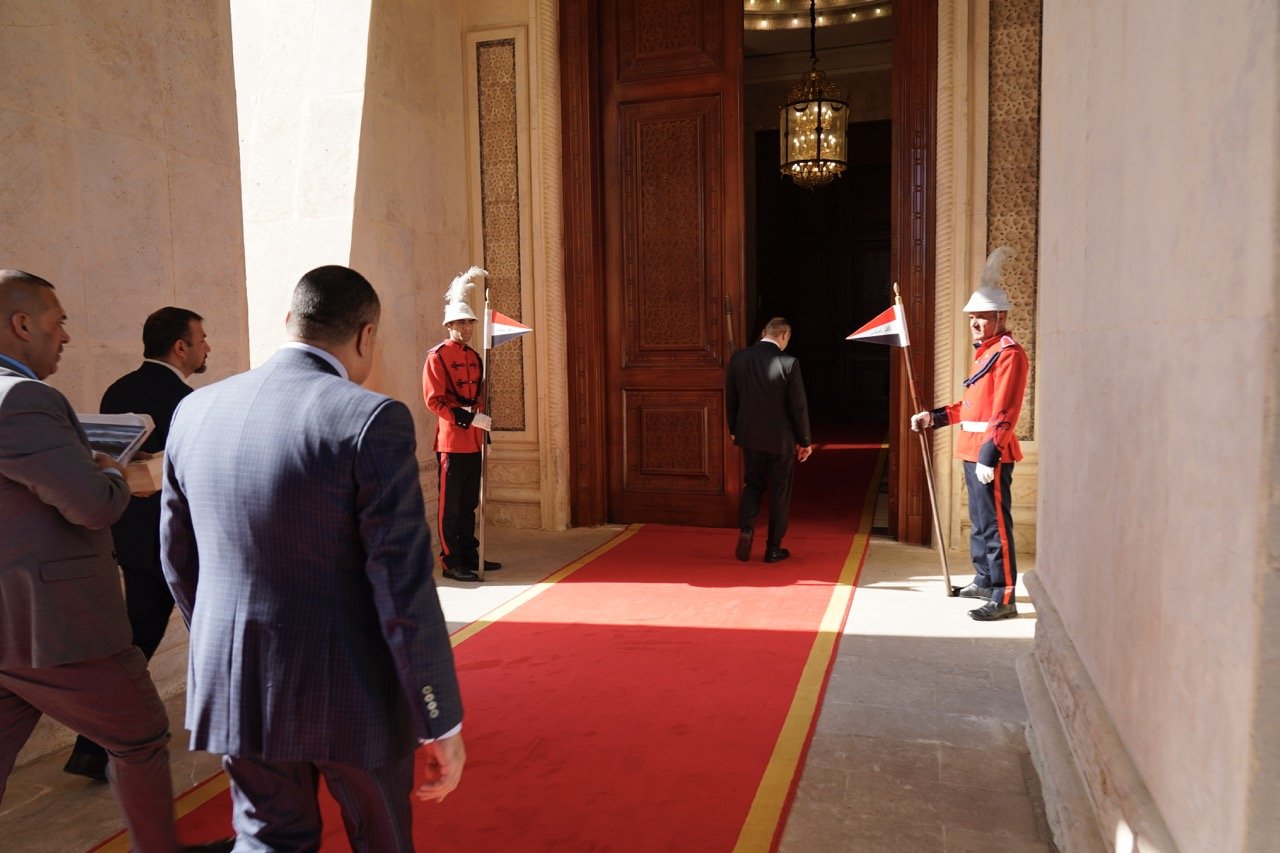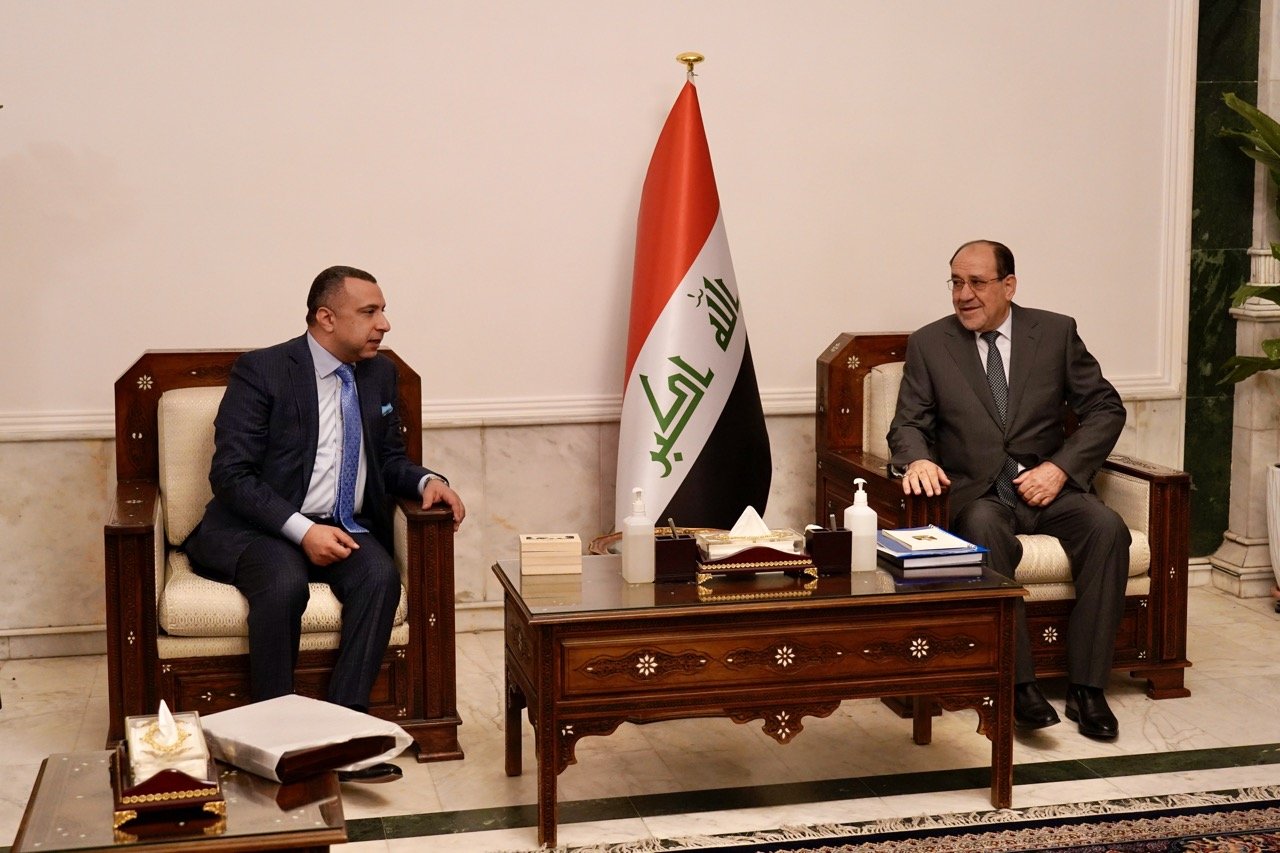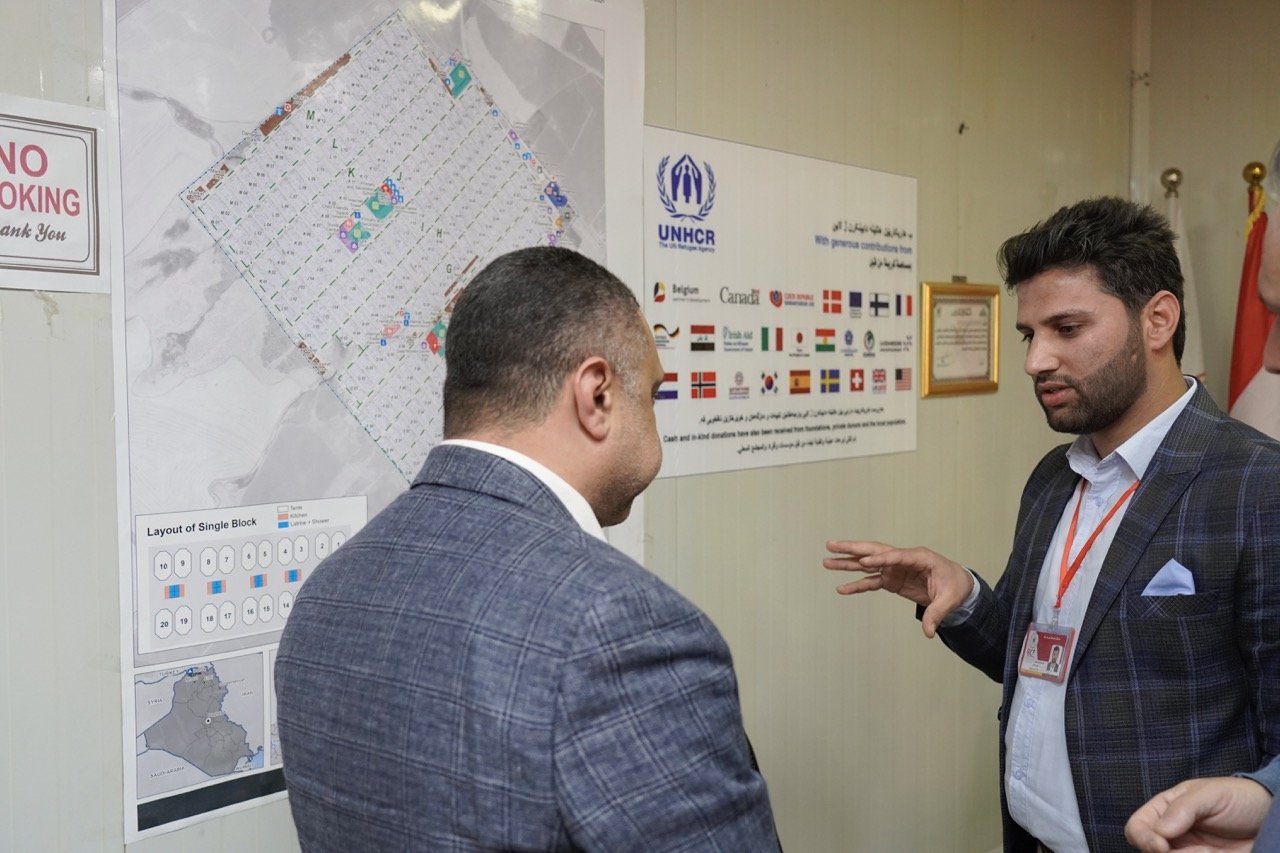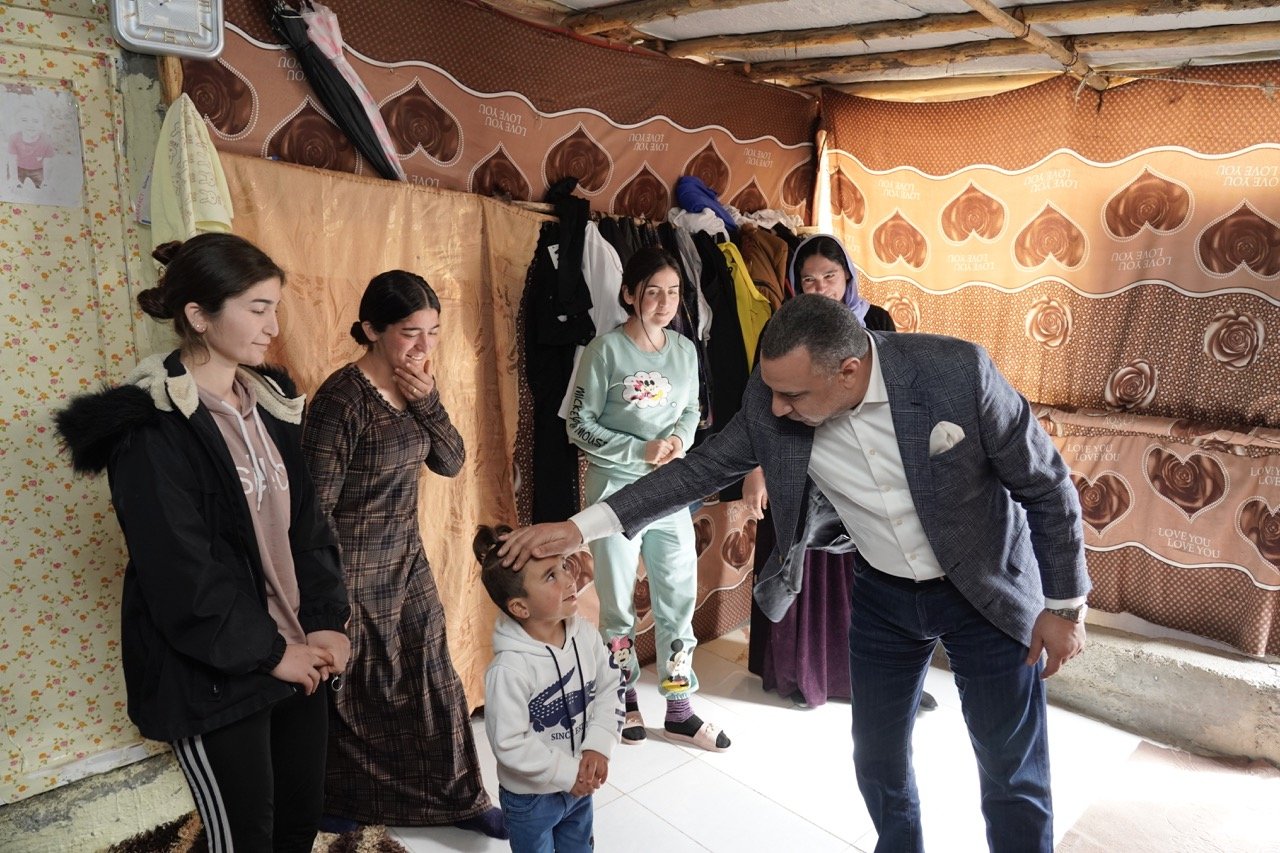Iraq Mission Report: Hope & Rebuilding
For nearly 20 years, One Free World International has been working tirelessly to fight for the rights of religious and ethnic minorities who have been unjustly persecuted for their beliefs and identity. Some of our most impactful work to-date has been standing up for persecuted Christians and rescuing hundreds of Yazidi families in Northern Iraq from the barbaric genocide perpetrated against them by ISIS.
Yazidi children at a refugee camp in Northern Iraq.
According to the United Nations, around 5,000 Yazidis were killed by ISIS between 2014 and 2017, and an additional 4,200–10,800 were kidnapped or held captive as part of a forced conversion to Islam campaign. Thousands of Yazidi women and girls were subjected to sexual slavery, reproductive violence, human trafficking, and other atrocities.
ISIS also carried out forced displacement, property theft and destroyed villages and holy sites within Iraq's ancient Christian community. The United Nations estimates that around 200,000 Christians fled their towns in Nineveh when ISIS attacked in June 2014 to avoid being forced to pay a tax to ISIS and convert to Islam.
His Eminence Sayyid Ammar al-Hakim, the Head of the Parliamentary Al-Hikma Movement (National Wisdom Movement)
In an effort to continue to monitor the human rights situation for Yazidis, Christians, and other minorities in the region, One Free World International recently embarked on a special 5-day mission to Iraq last month. OFWI’s Founder and President Rev. Majed El Shafie led an 9-person international delegation of politicians, human rights defenders, and security experts from the United States, United Kingdom, Canada, and Iceland to advocate for persecuted minorities.
The OFWI team has compiled a detailed report of the delegation’s 5-day mission to take you close to the action.
To kick off the mission, the delegation had the pleasure of meeting with His Eminence Sayyid Ammar al-Hakim, the Head of the Parliamentary Al-Hikma Movement (National Wisdom Movement).
Among the guests were Dr. Hossam Muhammad, a member of the political body of the movement and an advisor to His Eminence Sayyid Ammar al-Hakim, Ms. Laila al-Khafaji, and a former member of the House of Representatives and a member of the Political Bureau, Mrs. Hamdiya al-Husseini.
The delegation entering the building to meet the President
On Day 2, the delegation visited His Excellency Dr. Abdul Latif Rashid, President of the Republic of Iraq, in the Republican Palace, in the presence of Mr. Kamel Al-Dulaimi and Mr. Mowaffaq Asaad Ahmed, Advisor to the President of the Republic.
The delegation had a productive discussion about national security and ways to strengthen the relations between Iraq and other countries through respect for sovereignty and commercial and cultural exchange, and continued to stress the importance of embracing Iraq’s ethnic and religious diversity, particularly for Yazidis and Christians. The President emphasized the improving security situation in Iraq and expressed a desire to attract more tourism to the country to grow the economy and show the world the progress Iraq has made.
Meeting with Evan Jabro, Minister of Immigration
After an insightful meeting with the President, the delegation proceeded to meet with Her Excellency the Minister of Immigration, Ms. Evan Jabro. The conversation focussed on the suffering of thousands of displaced Iraqis, most of whom are in camps, as well as those that are displaced within the villages and cities surrounding them.
The delegation discussed the challenges of returning them to their homes following the liberation operations against ISIS. One Free World International pledged to offer its support where possible and committed to continuing to work collaboratively with the Minister to help displaced minorities.
Majed El Shafie pictured with Vice President Nuri al-Maliki
Next, the delegation had the privilege of visiting the Vice President and former Prime Minister of Iraq, Nuri al-Maliki. The discussion included the importance of economic, commercial and cultural exchange, as well as the human rights situation on the ground and what the Iraqi government is doing to protect minorities. The Vice President also discussed the current situation following the liberation of cities from the oppression of ISIS, and his vision for Iraq in the years ahead.
Dr. Mishaan Muhyiddin Al-Khazraji at the headquarters of the Diwan
On Day 3, the delegation visited the head of the Sunni Endowment Diwan, Dr. Mishaan Muhyiddin Al-Khazraji at the headquarters of the Diwan. The main topic of conversation focussed on the challenges surrounding the return of displaced Sunnis to their homelands after the liberation of ISIS, which led to the displacement of thousands of residents of the governorates north of Baghdad, most of whom come from the Sunni Arab community.
Dr. Al-Khazraji also shared his thoughts on the combat operations between the two sides, which tragically claimed many lives and left rubble from destruction. OFWI pledged to offer its support in any way possible as the community continues to rebuild and resettle.
That night, the delegation traveled to Erbil to reposition to be able to bring the delegation to the frontlines of past conflict and where thousands remain displaced.
Onto Erbiil
Waking up in Erbil on Day 4, the delegation embarked on a trip to the Chamshko Camp in Dohuk Governorate / Zakho district, which is mostly populated by internally displaced persons (IDPs) from the Yazidi community as well as other minorities. IDPs is a technical descriptor that is very similar to refugees, but are people who still actually reside in their own country.
Briefing with the Chamishko Refugee Camp Manager
The delegation began the visit by meeting with the camp Manager and listened to stories of the suffering of the camp’s refugees and IDPs.
Several issues plague the camp and its residents, including the lack of critical services, poor infrastructure, unsafe housing conditions, as well as exposure to violent crime including murders, sexual violence, and domestic abuse. Fatal tent fires have also repeatedly been a problem at the camp due to the use of flammable materials and unsafe heating methods during cold winter months.
Briefing of the healthcare needs and limitations at the refugee camp
The delegation proceeded to visit the medical clinic where OFWI President and Founder Majed El Shafie spoke with doctors, nurses, and pharmacists about the camp’s medical supply needs and what OFWI can do to support them.
OFWI learned that the clinic is still in need of several critical medications and medical supplies in order to adequately serve the needs of residents.
Yazidi student at the refugee camp’s school
Afterwards, the delegation was delighted to visit the school and meet with teachers about the school’s needs and of course the bright eyed children about their hopes and dreams for the future. OFWI learned that the school is in need of computers and other technology in order to prepare the school’s students for the future.
Later, the delegation met with a grieving Yazidi woman whose husband and 6-year old daughter were senselessly murdered just outside the camp a day prior. Rev. El Shafie offered his condolences on behalf of the delegation and committed to supporting her where possible in the months ahead.
The delegation also had the privilege of meeting with a Yazidi family that shared their struggles living at the camp and recounted stories of unsafe living conditions, violence, and fears of potentially facing a terrorist attack. Family members described a longing to return to their indigenous homelands but express anxiety around safety and security.
Over 85% of Batnaya, Iraq, a Christian village in Iraq’s north, was bombed and destroyed during the war.
In the afternoon, the delegation traveled to the village of Batnaya in the Nineveh Governorate. Following the defeat of ISIS, Batnaya was left as the worst damaged of the Christian towns and villages in the historic Nineveh Plains.
The delegation was received by the Chaldean Archbishop Thabet and the Priest Farid Kina, at the Chaldean Church of St. Kyriakos. Delegates heard stories of how militant extremists decapitated statues, smashed up the altar, and used the sacred images above the altar for target practice in the very church they were standing.
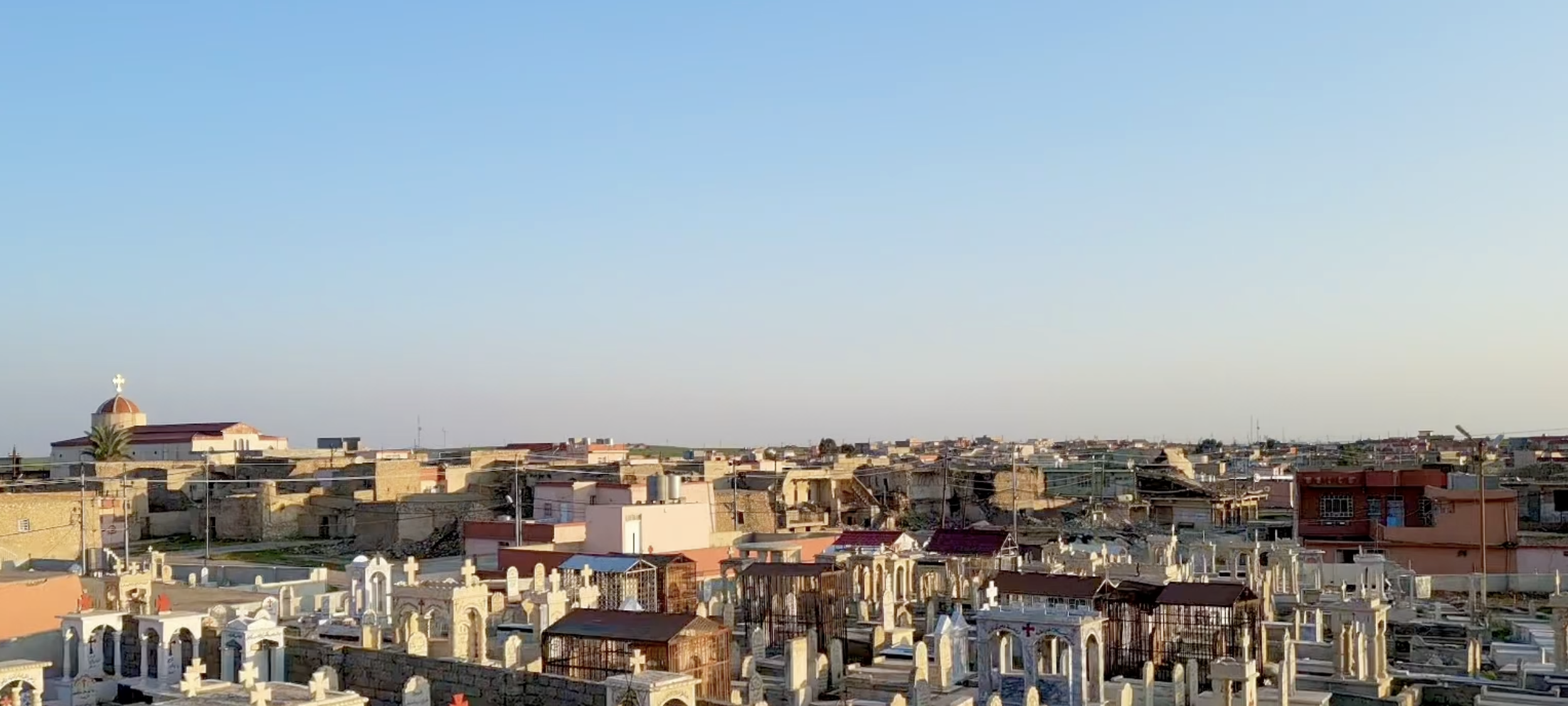
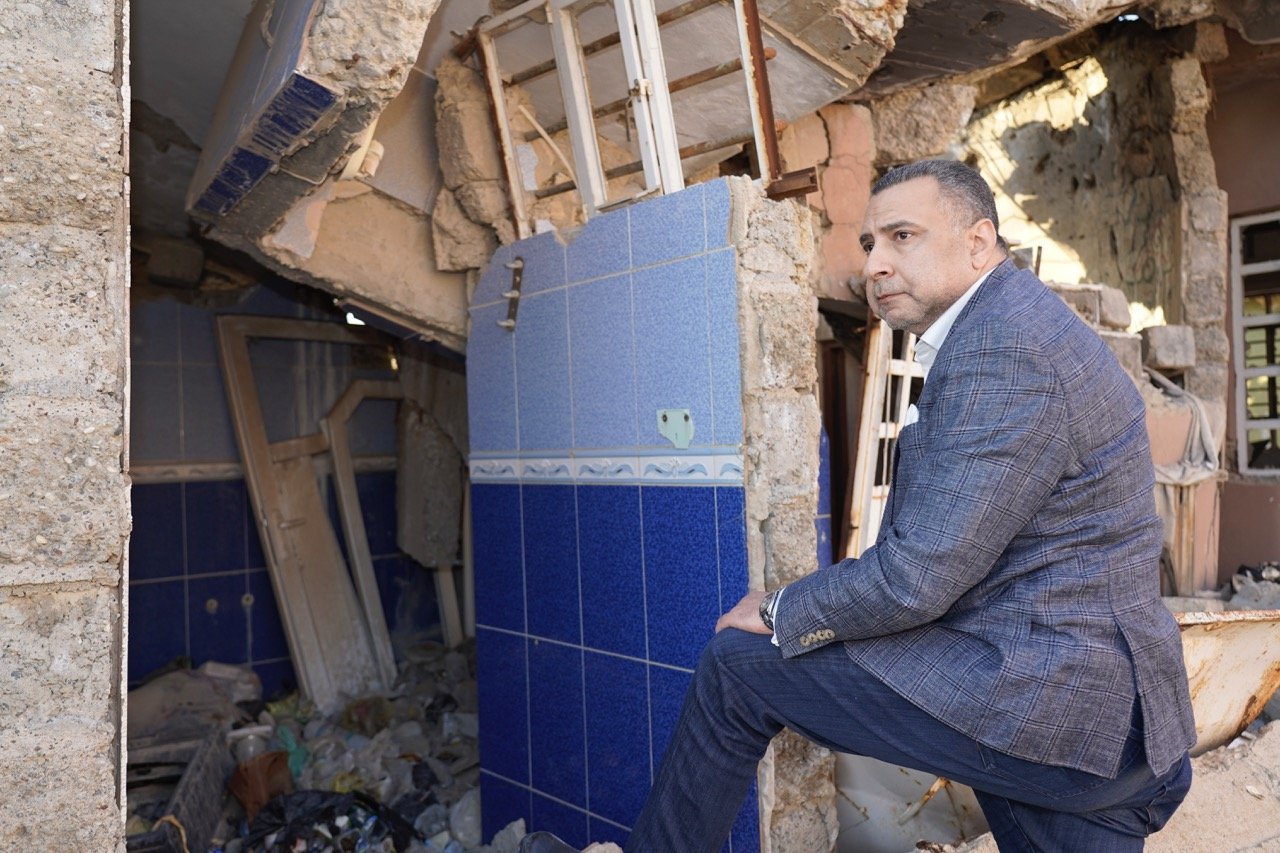
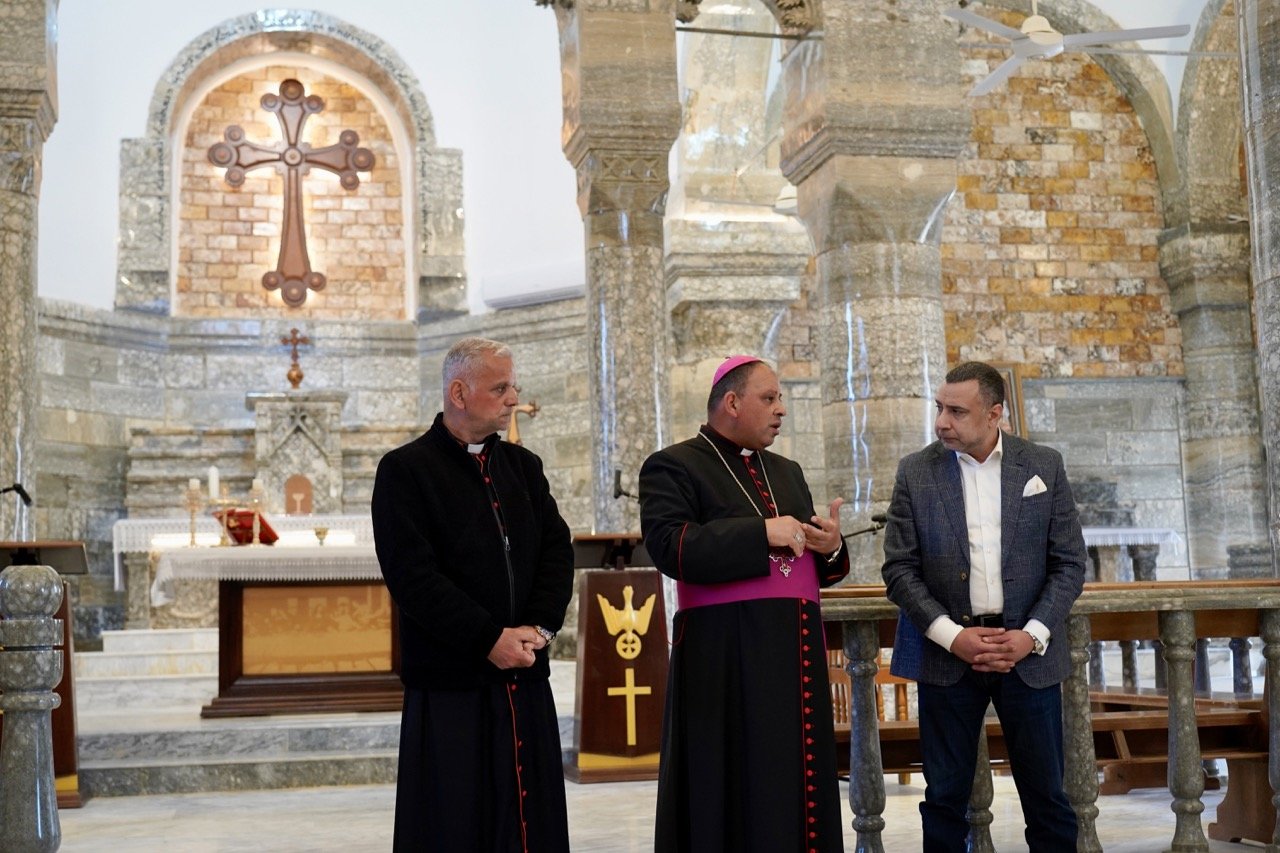
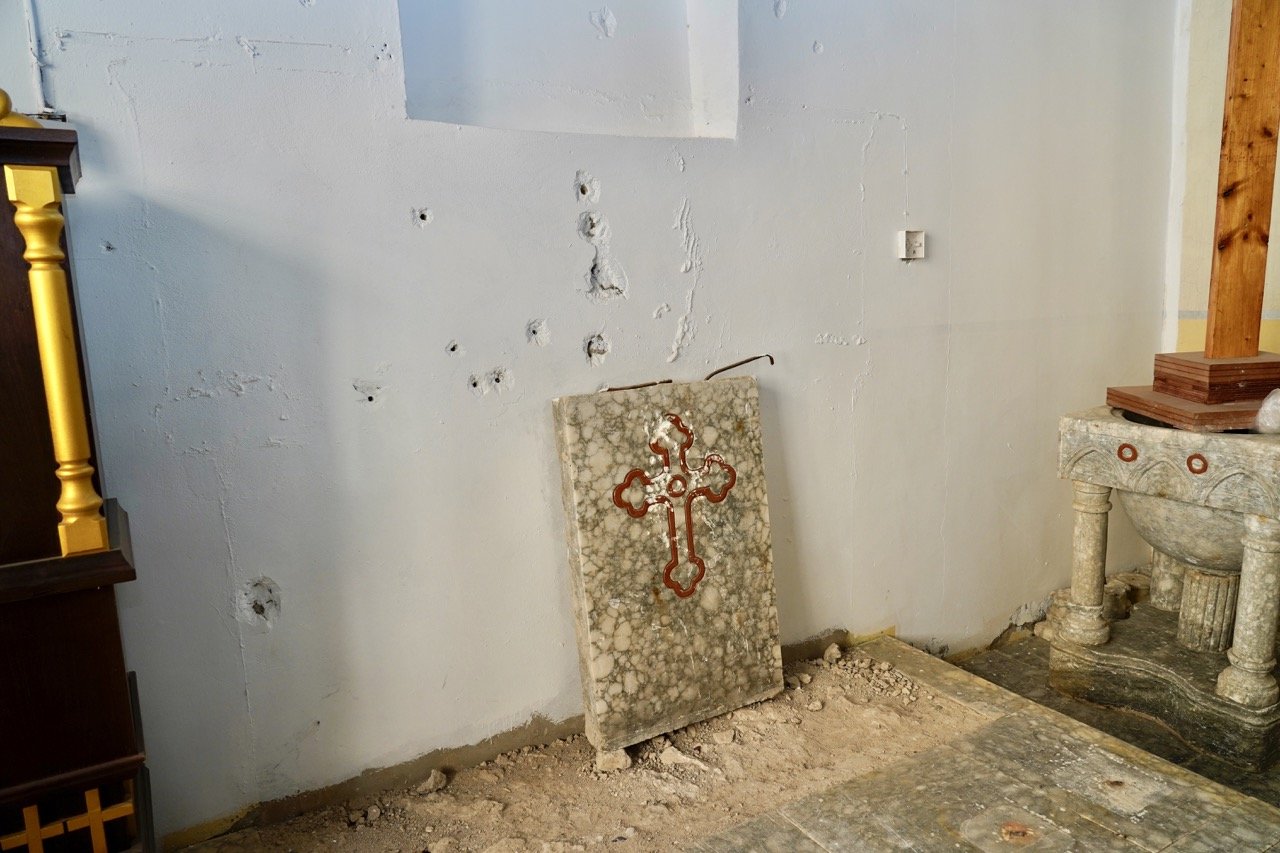
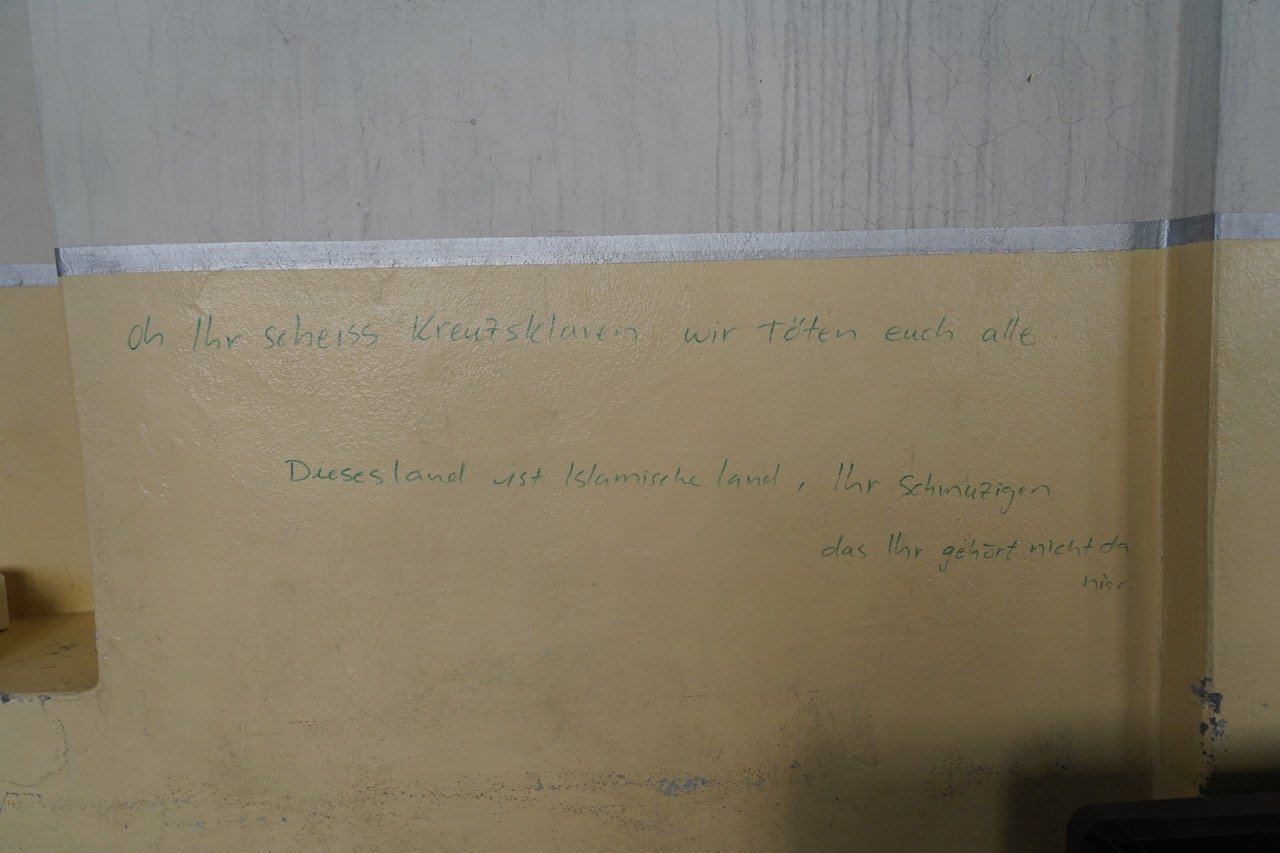
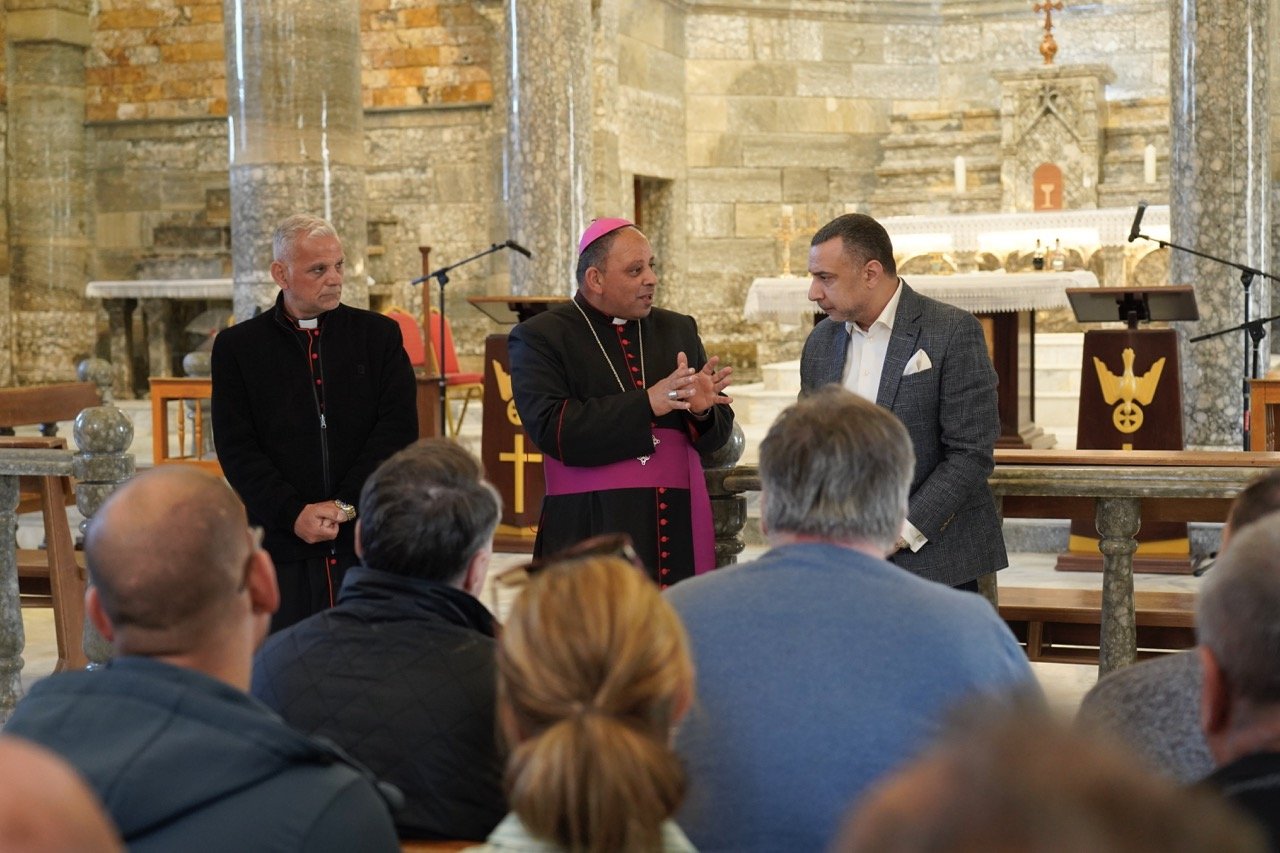
The bishop recounted how the residents of Batnaya suffered from persecution and displacement from ISIS militants in 2014, and how they left their homes and fled to the Kurdistan Region.
In the nearby Chapel of the Immaculate Conception, extremists wrote anti-Christian graffiti on the walls which included slogans in German that read: “O, you [expletive] slaves of the Cross, we will kill you all… You dirty people, you do not belong here.”
After liberation, Batnaya continued to suffer and was bombed in an effort to eliminate the ISIS militants that had settled in the village and they even went as far as to dig tunnels in houses to protect themselves. Touring the village, our best estimate is not even a third has been rebuilt.
The day concluded with a tour of the village to witness the horrific destruction firsthand and also provided an opportunity to connect with local residents to hear about their stories and challenges that remain after ISIS was forced from the region.
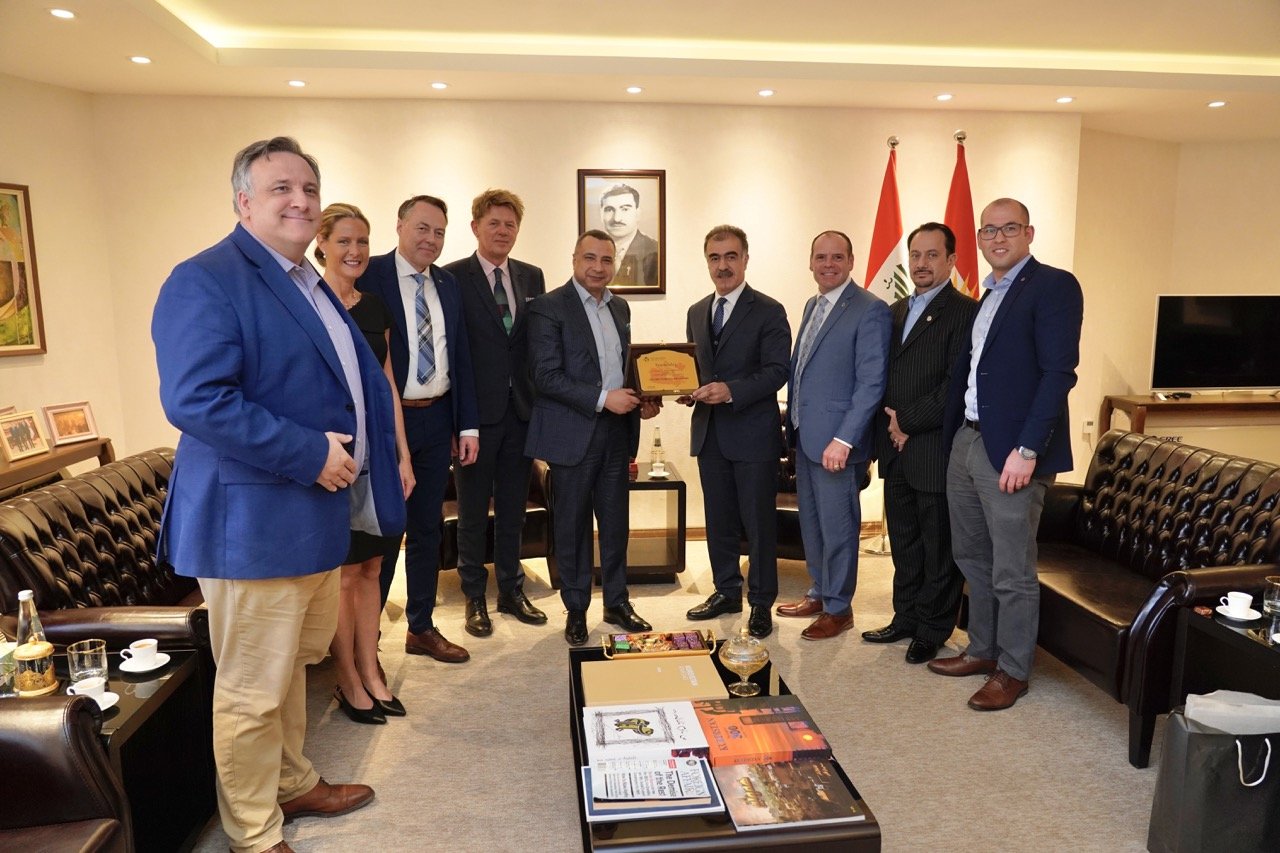
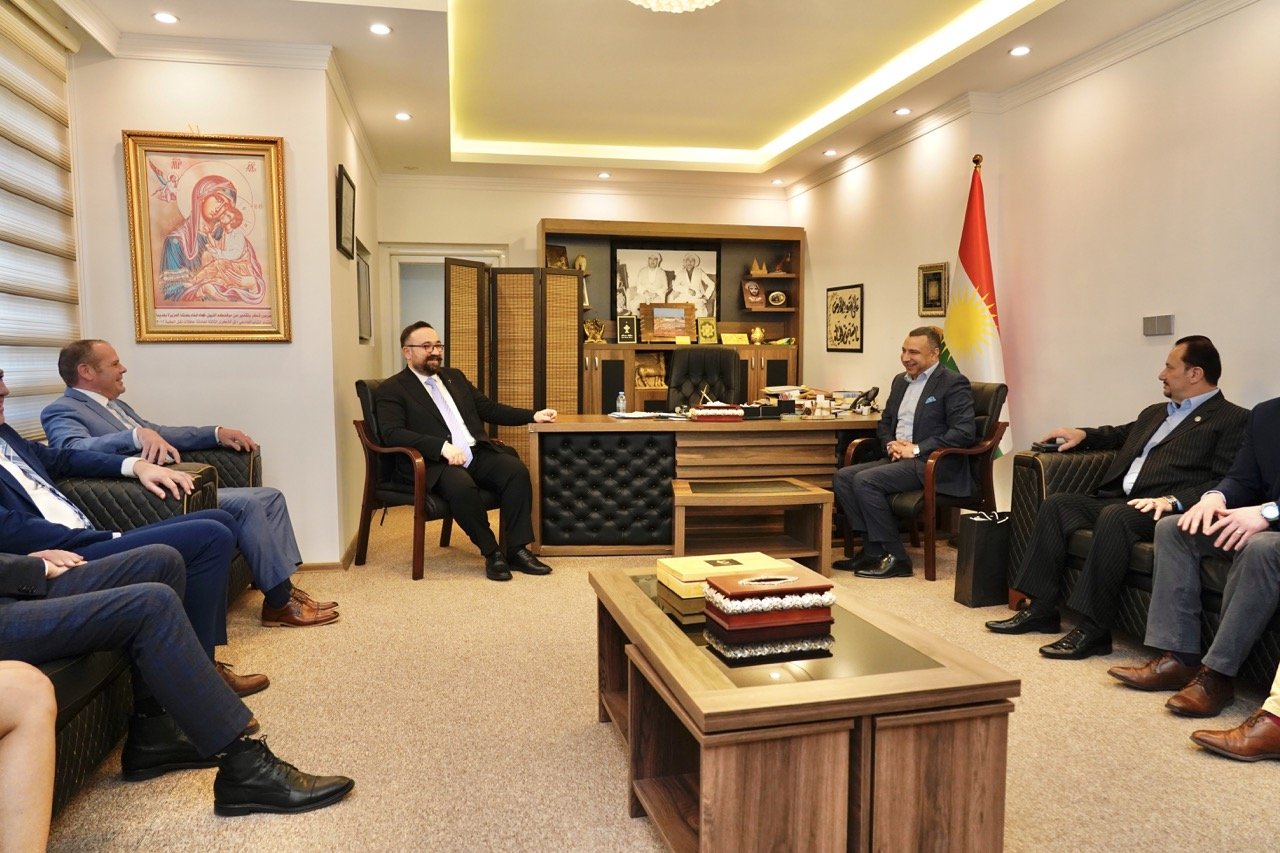
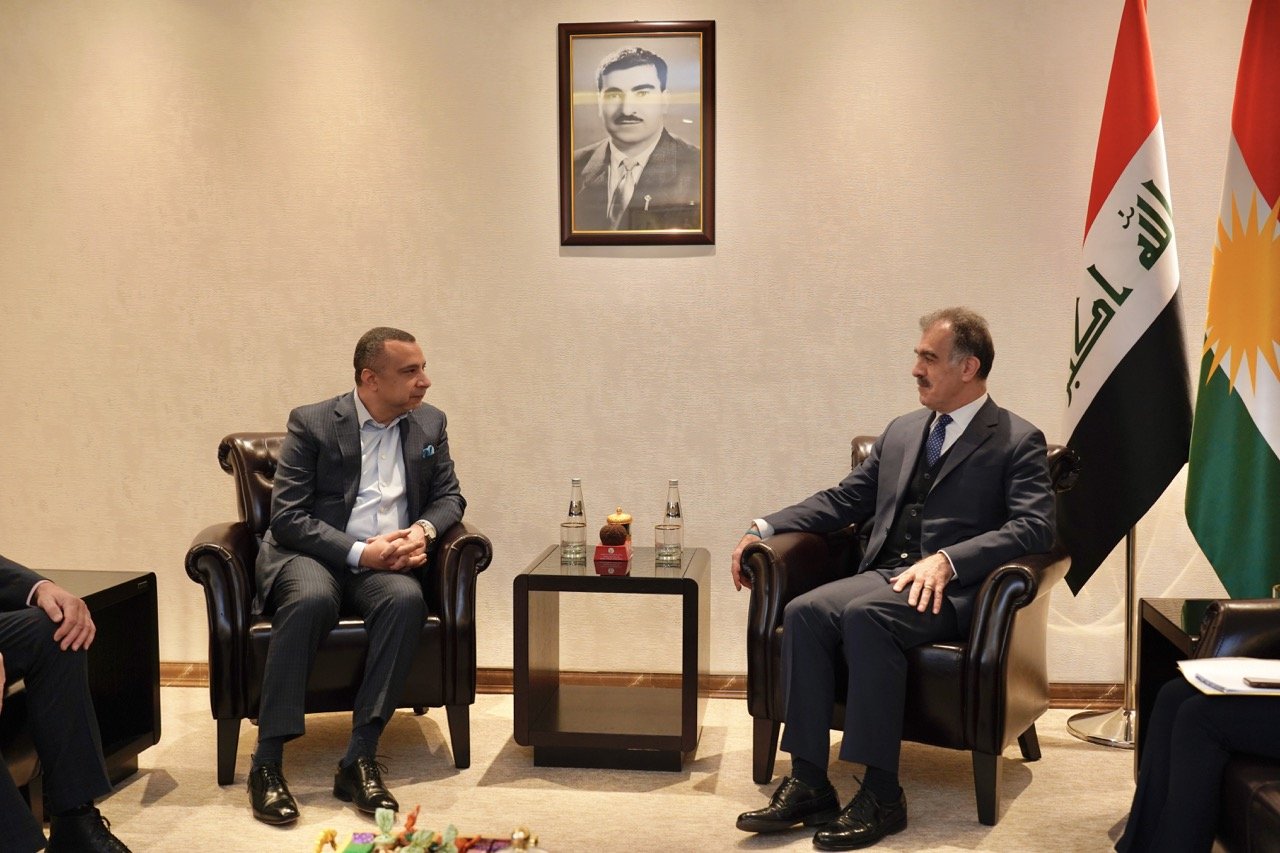
On the final day of the mission, the delegation met with His Excellency the Minister of Foreign Affairs of the Kurdistan Regional Government, Mr. Safeen Dizayee, at the Ministry's headquarters. The delegation learned about the history of the Kurdistan Region as well as the Regional Government’s priorities, including addressing the displacement of more than 4 million Christians, Yazidis, and even Shiite and Sunni Muslims from their cities, villages, and homes and their journey to settling in the Kurdistan Region.
Delegates heard about the Regional Government’s efforts to accommodate minorities, protect their culture and rights, and their important role in acting as a safe haven within the Middle East. Rev. Majed El Shafie expressed OFWI’s readiness to collaborate with the Regional Government to help with the ongoing challenge of finding permanent solutions for IDPs.
The delegation’s final meeting of the trip concluded with His Excellency the Minister of Transport and Communications of the Kurdistan Regional Government, Mr. Ano Jawhar Abdulmaseeh Abdoka. He is the sole Christian Minister within the Regional Government and spoke passionately about his faith, the Bible, and the importance of protecting minority rights in Kurdistan, especially those of the Christian faith who have fled persecution.
Conclusion
Embarking on this mission to Iraq was absolutely vital for understanding the situation on the ground for Christian and Yazidi minorities. While it’s encouraging that both the Iraqi Government and Kurdistan Regional Government have assured the delegation that human rights will be protected for minorities and much progress has been made, there is still so much more work to do.
Whether it’s for much needed medications and school computers for the children forced to live at the Chamshko Camp, or building supplies to help rebuild Christian villages like Batnaya destroyed by ISIS, OFWI remains committed to helping ensure we have the necessary resources to support our brothers and sisters in Iraq.
Thank you to all of our generous supporters for taking a stand in support of persecuted minorities. Without you, OFWI’s work to support these communities would not be possible.
Help us take our efforts to support persecuted Christians and Yazidis to the next level:




